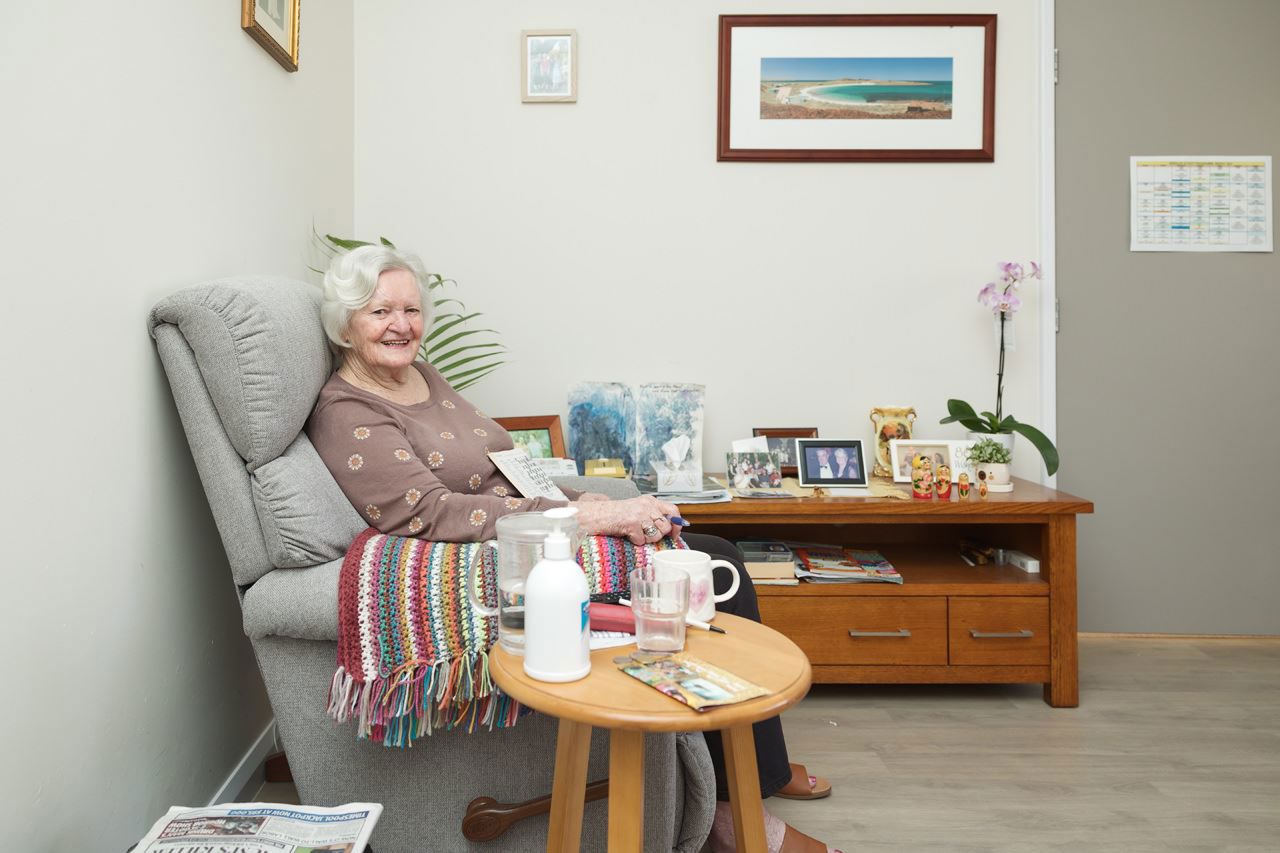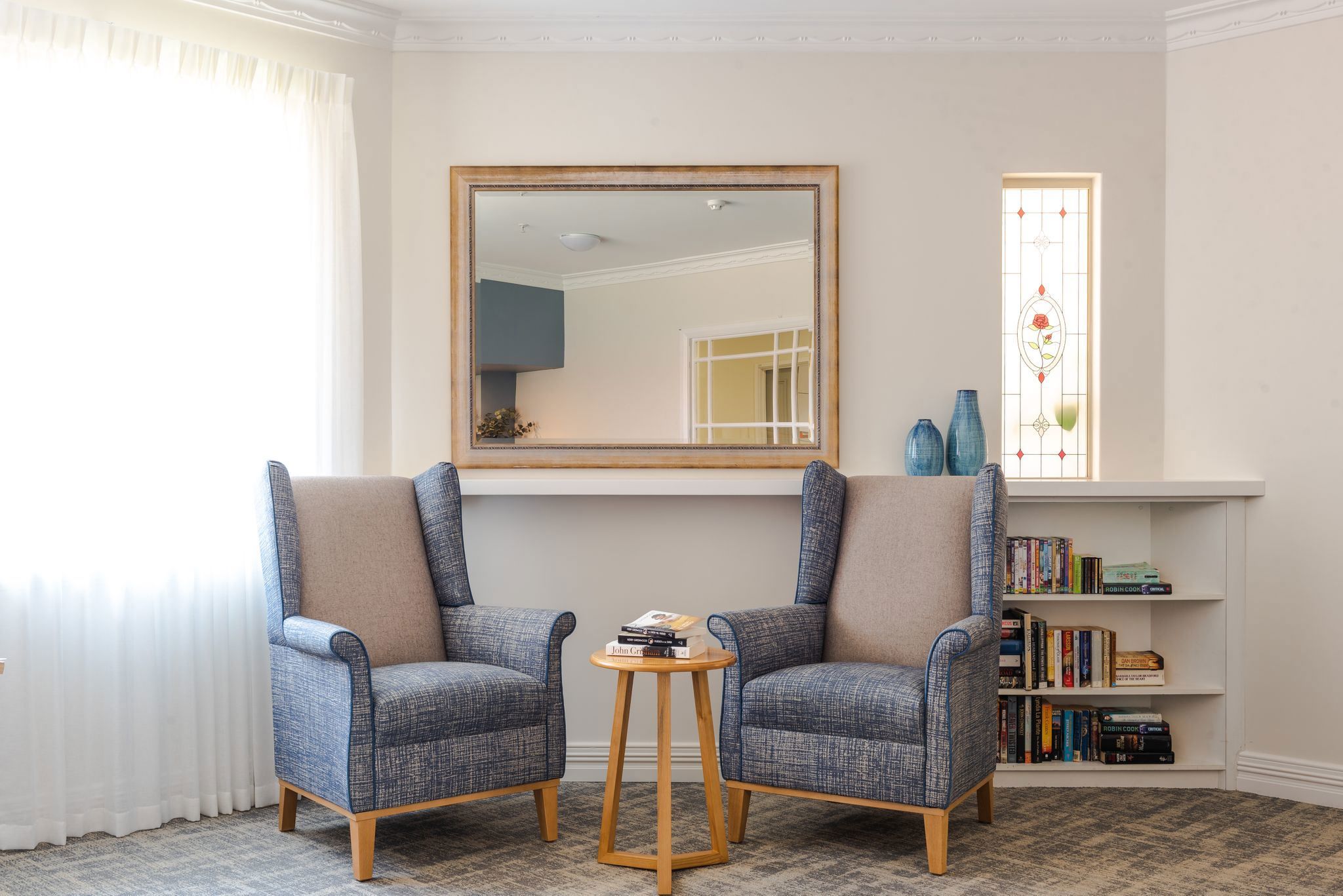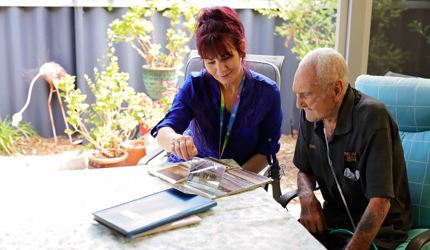
For many older people, there may come a time when they can’t go home after a hospital stay. Even though their immediate medical needs have been met, they might be assessed as being unable to look after themselves.
This is when a hospital social worker will recommend that they go into a Transition Care Program at a designated aged care home, where they can be supported to get ready for the next step which may be permanent residential aged care.
It can be a shock for the patient, and for their families.
“It's a very emotional time, and families can feel quite overwhelmed,” says Kamlesh Kaur, who is the residential aged care service manager at Brightwater Birralee. Kamlesh and her team manage the Transition Care Program, or TCP as it is often called, at Birralee.
When you can’t go home
The Transition Care Program (TCP) is a short-term accommodation and support program for older people with higher care needs who can’t go home when they are first discharged from hospital.
Instead, they go to a designated TCP aged care residence, which is where they will live for up to 12 weeks and complete a program of therapy and other support services, to improve their physical capabilities and confidence.
As soon as each client arrives at the home, the staff begins the important process of getting to know them. They carry out comprehensive assessments, and meet with the client and their family to find out any concerns they might have, and to set goals for the program. From there, a personalised and goal-oriented plan is put into place.
Kamlesh says the success of the transition care program depends on actively listening to each client, their family and loved ones, and acting on the information they provide.
“If it were my mum and I knew that my concerns would be listened to, then I would be more comfortable leaving her, knowing she will be looked after,” she says.
Making it feel like home
The TCP residence is designed to be a warm and welcoming environment. Unlike at a rehabilitation centre, therapists and other medical specialists are not based at the home but visit clients there for scheduled appointments.
TCP clients and their families are encouraged to enjoy spending time together at the home. They can go on short outings, and relax in the gardens and living areas. Visitors are welcome to participate in day-to-day life, just as if visiting a private home. It can be a restorative time for everyone.
“It is a transition for the client and for their families. Until this moment, they didn’t know anything about residential aged care, and have never been through this process. Families are going through a lot as well,” says Kamlesh.

After the transition program ends
Brightwater’s social workers provide guidance for the discharge plan, whether it is to return home with support or move into permanent residential aged care.
Planning for discharge actually starts at admission, when the TCP team begins putting together referrals for community health and support services or ideas for permanent residential care, where needed.
Most people spend 7-8 weeks in transition care, although they can sometimes be there for 12 weeks or more.
“Sometimes we have to extend the stay even after 12 weeks. If, for example, the client has not yet achieved their goals, or the family is having difficulty securing a placement or organising the finances,” says Kamlesh. “We don't leave them by themselves to sort it out. We support them as much as we can.”
Is transition care right for you, or your loved one?
To be eligible for the program, the person must be an admitted patient of a public or private hospital. For the purposes of transition care, an admitted patient includes people receiving hospital-in-the-home.
They must also be assessed as eligible for transition care by an Aged Care Assessment Team (ACAT). Hospital social workers can help you to arrange for an ACAT assessment.
All clients and residents pay the basic daily care fee, equal to a maximum of 85% of the full single age pension. The rate is updated twice a year, in line with increases to the age pension.
Brightwater offers the Transition Care Program at two locations: Birralee (Innaloo) with 30 beds for TCP clients and 30 for permanent residents, and Kingsley with 41 beds for TCP clients. Both are warm and welcoming homes, designed specifically for after-hospital care.
“We often get feedback from families expressing their surprise about how much their loved one has improved since entering the transition program, to the point where they are more independent and involved in all the activities,” says Kamlesh.
If you have any questions regarding transitional care, give our Welcome Team a call on 1300 223 968 or email welcome@brightwatergroup.com



